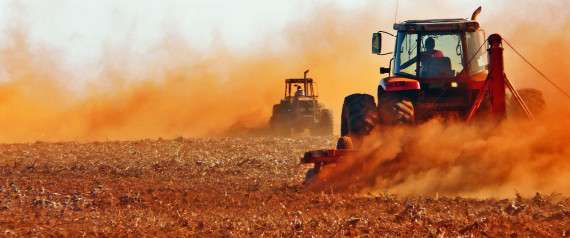What's in the 2014 Farm Bill?

The purpose of the Farm Bill is to balance the immediate needs of feeding the country with the long term goal of ensuring a sustained food supply.
In order to unite the interests of both urban and rural communities, the Farm Bill combines food assistance for our fellow country men, women and children in need, along with longer term agricultural policies. The Farm Bill once united the country, but since 2012 it has become highly contentious in Congress. Decades of agriculture policies that promoted industrial agriculture created powerful industries that refused to compromise.
On the other hand, the damage caused by industrial agriculture united a diverse coalition demanding safeguards and policies that promote more integrative agricultural practices like organic farming. And all the while, Republican negotiators were bent on draconian cuts to food assistance programs, which as Congresswoman Rosa DeLauro (D-CT) said in a House floor speech this week, "will push Americans already living on the edge, that much closer to the brink."
The most striking thing about the final Farm Bill is not the success for sustainable agriculture, but the greatness of the defeat suffered by monopoly giants. It may have been the result of Republicans' laser-like focus on cutting food stamps, but there was a notable shift.
Perhaps the biggest victory was the defeat of the "King Amendment." Over 500 organizations, newspapers and officials stood up in opposition to the King Amendment which which would have negated state and local laws regarding the production or manufacture of agriculture products.
"The dangerous King Amendment could have nullified hundreds of state laws on animal welfare, food safety, and other important issues," said Michael Markarian, president of the Humane Society Legislative Fund.
"The conference committee produced a Farm Bill that will fortify the federal law against organized and barbaric dogfighting and cockfighting rings," said Wayne Pacelle, president and CEO of The Humane Society of the United States.
Full funding for organic farm programs is a big victory. In the U.S., demand for organic food products far exceeds supply. Funding programs, although quite small, will begin to help domestic farmers transition to organic farming to meet this growing demand.
Another victory: The meat and poultry lobby had sought to cripple Country of Origin Labeling (COOL) requirement for meat, but the requirements remain intact.
Further corporate overreach was defeated in the form of a little-known provision called the "GIPSA rider." GIPSA stands for Grain Inspection, Packers and Stockyard Act. The GIPSA rider would have put restrictions on the authority of USDA to address fraudulent, deceptive and retaliatory business practices.
"The GIPSA rider was a congressional attempt, on behalf of the poultry integrators, to override fair business practice regulations that address the way the industry treats the farmers that produce chickens for them," said Steve Etka of the Campaign for Contract Agriculture Reform.
Ultimately, the food safety, animal welfare, sustainable agriculture and environmental communities united and achieved significant progress this year.
"The food movement didn't win the major structural reforms that are called for, but we held the game in play and stopped the most egregious policies," said Colin O'Neil of the Center for Food Safety. "Our major victories are BIG defeats for the usual power players."
The ultimate deal was far from perfect, but it reflects the growing power of the food movement and it just might hint at the beginnings of a new direction for American agriculture.
Follow Elizabeth Kucinich on Twitter: www.twitter.com/EJKucinich
Copyright © 2014 TheHuffingtonPost.com, Inc
http://www.huffingtonpost.com/elizabeth-kucinich/2014-farm-bill_b_4694848.html